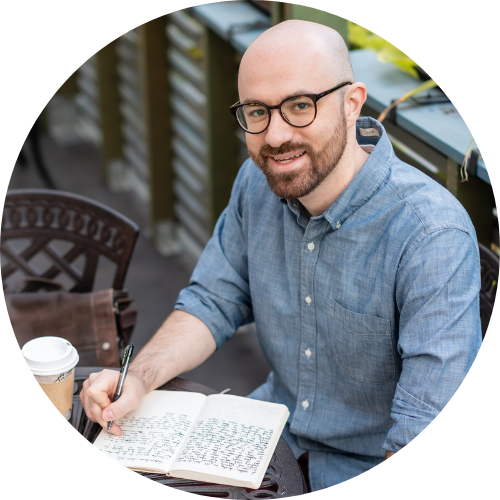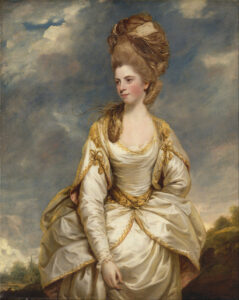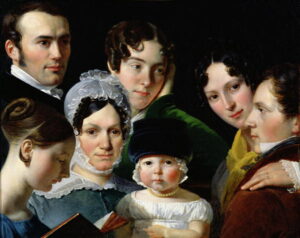How Great Books Work
A Writer’s Guide to the Western Canon
Welcome to How Great Books Work
Hi, I’m Bill! I’m a writer, a student of writers, a literature teacher, and a writing coach. I started How Great Books Work to understand how great writers wrote stories that I love.
Some of my favorite writers are Jane Austen, Willa Cather, Dante, Shakespeare, and Dostoevksy. They’re some of my favorite teachers, too. These aren’t inexplicable geniuses with inscrutable imaginative powers. They’re models who can help you write your most surprising, original, and powerful stories. They can also help you understand your family, your friends, and yourself better.
I have a Ph.D. in English and a Master’s degree in Creative Writing, as well as ten years’ experience helping writers, students, and organizations tell their stories. I’m here to help you tell yours, too.
In my newsletter and articles for this site, I try to understand these books by reading them as writers who practiced the craft of storytelling.
I love learning and writing about philosophy, religion, culture, psychology, creativity, board games, fantasy, science fiction, and other things. You can check out some of my other writing here.

Recent Articles
- HGBW #4: Lizzie Bennet’s Four SuitorsLast week I asked, how many suitors does Lizzie Bennet have? Most people say three: Mr. Collins, Mr. Wickham, and Mr. Darcy. But a writer would say she has four. Lizzie Bennet’s Four Symbols In a romance, every suitor is a symbol. The suitor offers the protagonist a possible life, and… Read more: HGBW #4: Lizzie Bennet’s Four Suitors
- HGBW #3: Pride and Prejudice and Story StructureStarting this week, we’re taking a deep dive into the writing choices and techniques that make Pride and Prejudice a great novel. (If you haven’t read it already, check out this post on how Jane Austen makes her characters lively through density of action). Let’s start by asking, what kind… Read more: HGBW #3: Pride and Prejudice and Story Structure
- HGBW #2: Creativity, Rhetoric, and MonkeysHi Everyone, This week I want to talk about writing and learning: how we learn and how we could learn. Ancient teachers did not teach “literature” as a separate subject, but they taught storytelling as part of rhetoric—the art of persuasion. And they expected their students to learn to tell… Read more: HGBW #2: Creativity, Rhetoric, and Monkeys
- HGBW #1: MFA Thinking, Movie Structure, and Reading Like a NovelistDear Friends, Welcome to How Great Books Work! I started this newsletter because I want to figure out what classic novels, poems, and plays can teach us about writing. My name is Bill Gonch, and I’m a writer, a literature teacher, and a writing coach. But for years, I’ve struggled with writing. Writing… Read more: HGBW #1: MFA Thinking, Movie Structure, and Reading Like a Novelist
- Why Are Jane Austen’s Characters so Alive?Quick-witted and sharp-tongued Lizzie Bennet sticks in your mind. So does her gentle older sister Jane; dark and reserved Mr. Darcy; as well as many other Austen protagonists. Her minor characters might be even more memorable—no one forgets Mr. Collins. At least as impressive is her ability to handle so many characters.… Read more: Why Are Jane Austen’s Characters so Alive?
For Writers and Writing Students
You have a book in you. Maybe it’s the novel you’ve always dreamed of writing, or the first step in your publishing career. Maybe it’s a way to make your mark in your profession. Maybe you’re a scholar, a scientist, or a specialist, and you want to share your expertise with the public.
I’m here to help! As a writing coach and editor, I help writers conceptualize and develop their ideas, plan their books, establish good writing habits, and write the most vivid and original book they can. I offer short-term solutions to your current writing problems as well as a long-term, ongoing coaching package by which I’ll accompany you from idea to finished manuscript. With a Ph.D. in English and more than ten years’ experience teaching writing, I’ll help you reach your writing goals – use the form below to schedule a FREE consultation today!
For Teachers and Parents
You know that students learn best when you engage their imaginations…but how can you use creative writing in your classes to achieve students’ learning goals and keep them engaged?
I developed “Creative Writing and Education: Why and How” to answer that question. The workshop combines insights from contemporary creative writing and screenwriting with tools and techniques from the Classical liberal arts tradition—the way in which Ancient Greek and Roman students learned. In the ancient world, reason and imagination were seen as complementary. Students learned through creative imitation and analyzed stories in order to write them. Students studied great masterpieces by imitating them and understanding how their authors made them. Similarly, history and rhetoric were taught by example.
Let me give you an example. A modern teacher might ask students, “Write a paper in which you analyze the causes of war between Alexander the Great and the Persian Empire.” But an ancient teacher would have asked something like this: “Compose and deliver a speech to Alexander the Great that advocates—for or against—war with Persia.” Then, the teacher would have broken down the elements of a successful persuasive speech so that students had a clear framework for their own creation. A speech requires students to master the historical record as fully as a paper would. But it also requires students to understand a particular person—Alexander—and position themselves within his world. It harnesses their imagination and creativity to help them learn.
I offer an introductory workshop for teachers or homeschool parents’ groups on using creative writing and rhetoric in middle- and high-school classrooms. I also offer ongoing workshops and educational coaching. You can bring creativity, imagination, and learning into your classroom – complete the contact form below to schedule a FREE consultation today!


